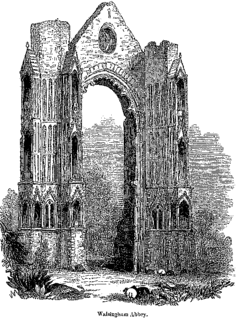...a satirical description of an individual fundamentally changing his principles to remain in ecclesiastical office as external requirements change around him. The religious upheavals in England from 1533 to 1559 and from 1633 to 1715 made it almost impossible for any individual to comply with the successive religious requirements of the state.
A satirical 18th century song, "The Vicar of Bray" recounts the career of a vicar of Bray, Berkshire, towards the end of this period and his contortions of principle in order to retain his ecclesiastic office despite the changes through the course of several monarchs from Charles II to George I.
The Vicar of Bray ~ a short history of English religion.
In good King Charles's golden days,
When Loyalty no harm meant;
A Furious High-Church man I was,
And so I gain'd Preferment.
Unto my Flock I daily Preach'd,
Kings are by God appointed,
And Damn'd are those who dare resist,
Or touch the Lord's Anointed.
And this is law, I will maintain
Unto my Dying Day, Sir.
That whatsoever King may reign,
I will be the Vicar of Bray, Sir!
When Royal James possest the crown,
And popery grew in fashion;
The Penal Law I houted down,
And read the Declaration:
The Church of Rome I found would fit
Full well my Constitution,
And I had been a Jesuit,
But for the Revolution.
And this is Law, &c.
When William our Deliverer came,
To heal the Nation's Grievance,
I turn'd the Cat in Pan again,
And swore to him Allegiance:
Old Principles I did revoke,
Set conscience at a distance,
Passive Obedience is a Joke,
A Jest is non-resistance.
And this is Law, &c.
When Royal Ann became our Queen,
Then Church of England's Glory,
Another face of things was seen,
And I became a Tory:
Occasional Conformists base
I Damn'd, and Moderation,
And thought the Church in danger was,
From such Prevarication.
And this is Law, &c.
When George in Pudding time came o'er,
And Moderate Men looked big, Sir,
My Principles I chang'd once more,
And so became a Whig, Sir.
And thus Preferment I procur'd,
From our Faith's great Defender,
And almost every day abjur'd
The Pope, and the Pretender.
And this is Law, &c.
The Illustrious House of Hannover,
And Protestant succession,
To these I lustily will swear,
Whilst they can keep possession:
For in my Faith, and Loyalty,
I never once will faulter,
But George, my lawful king shall be,
Except the Times shou'd alter.
And this is Law, &c.
The British Musical Miscellany, Volume I, 1734. Text as found in R. S. Crane, A Collection of English Poems 1660-1800



1 comment:
There are "up-dated" versions aplenty. This one highlights similar proclivities amongst some of our own dear clergy at this very hour. The great Fr. Paul Crane, S.J. had printed it in his indispensable journal “Christian Order”. But I couldn’t find my copy when I mentioned in a few years ago. And by return mail the resourceful Mr. Michael Pearce provided me with the following:
In great Pope Pius' golden days before the revolution
I swung my censer every week, I gave swift absolution
My music was Gregorian, on Holy Day and High Day
I knew my rubrics inside out, I ate no meat on Friday.
And this is law, I will maintain, until my dying day, Sir
That whatsoever Pope may reign, I still shall lead the way, Sir.
When Good Pope John assumed the throne and called his famous Council
As wise peritus I did serve, but kept the middle ground, Sir
Old principles I would uphold but change their application
And thus acquire a much-desired but fleeting reputation.
And this is law, etc.
I took the lone heroic course that all the world was taking
For medieval night was done, enlightened dawn was breaking
Denunciations old and stale, I said we should withdraw 'em
Of Rousseau, Marx and those who fill the Syllabus Errorum.
And this is law, etc.
In Paul the Sixth's betroubled reign, an age of contradiction
The all-renewing Council was a cause of constant friction
All its decrees were pastoral, it made no definition
But he who dared to question it was fated to perdition.
And this is law, etc.
And now that all in chaos lies, and churches are forsaken
My curate is to Cuba gone, and I a wife have taken.
I deck my flat with disused tat, by way of quaint memento
And trust the coming pontiff won't reverse aggiornamento!
And this is law, etc.
This version, according to Mr. Pearce, is by John Parsons, a convert to Catholicism now serving as parish priest in Australia. I'm not sure this is the same one that was printed by Fr. Crane, since my copy is among the missing. But if not, it is certainly its equal.
Cheers,
-John-
Post a Comment